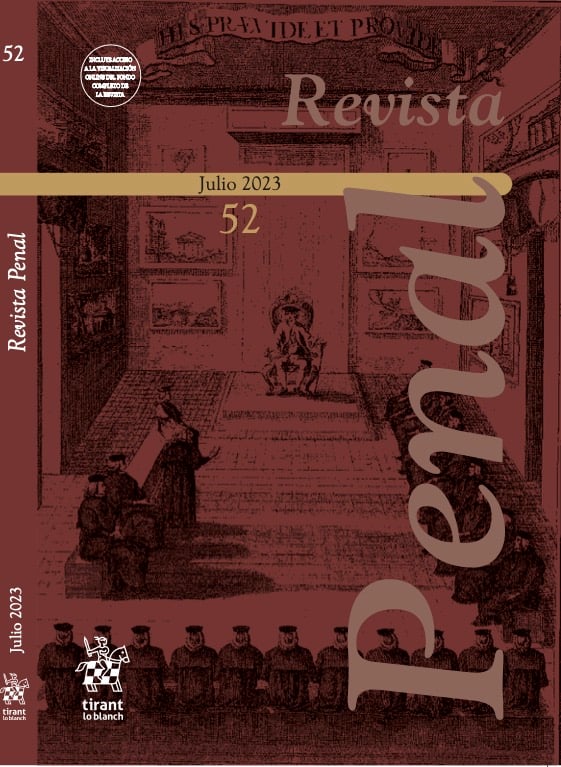Statute of Limitations and the Rule of Law
Keywords:
Statute of limitations, state self-limitation of ius puniendi, lack of necessity of punishment, due process, purposes of punishment, retribution, general prevention, special prevention, deservedness and necessity of punishment, the seriousness of the offence, fundamental right to oblivion, reasonable length of proceedingsAbstract
It reflects on the triple anchorage (constitutional, substantive criminal and procedural criminal) with a close connection between them that explains the basis of the statute of limitations in the criminal and criminal procedural law of the constitutional State of Law: the self-limitation of ius puniendi (“political” element), the lack of need for punishment (“natural” element) and due process (“artificial” element). After analysing how this legal institution behaves concerning retribution and the preventive purposes of punishment, the variables of deservedness and necessity of punishment are introduced, as well as those of the seriousness of the crime and the “fundamental right to oblivion” linked to the reasonable duration of the process as arguments in favour of its material legal nature.



